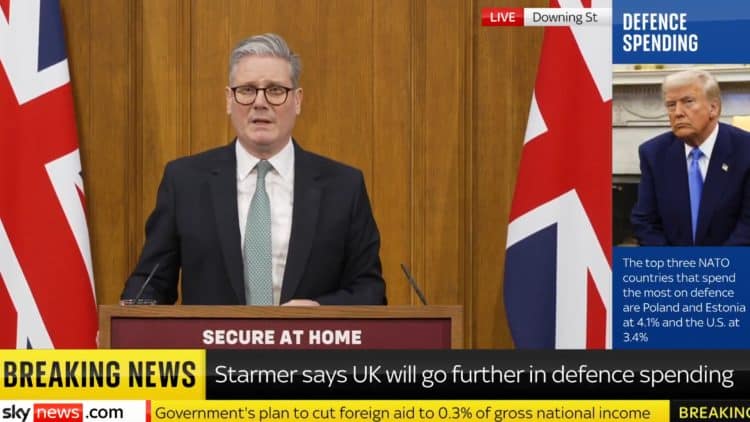The government’s planned disability benefit cuts will hit 700,000 families already in poverty, according to new Department for Work and Pensions (DWP) forecasts obtained by the Guardian.
The figures, released under the Freedom of Information Act, add to the 250,000 people the government previously estimated would fall below the poverty line due to these cuts. The impact assessment from March shows that 3.2 million families across Great Britain will be worse off by 2029/30, three years after the cuts are set to take effect.
📉 Pushing Families Further Into Poverty
Of those affected, 700,000 families are already categorised as being in relative poverty once housing costs are considered. Campaigners say these cuts will push disabled people even further from the jobs market, despite the government’s claims of boosting employment.
Mark Harrison from Disabled People Against Cuts called the figures “truly shocking.” He said: “It’s unthinkable to push disabled people already in poverty deeper into the mire and further away from the jobs market.”
He warned this could become a defining political error for the Labour government. “If they don’t scrap these cuts, this will become Starmer’s poll tax and his downfall,” he added.
Svetlana Kotova, director of campaigns and justice at Inclusion London, a deaf and disabled people’s organisation, said: “These statistics are further evidence of how much misery the government is willing to inflict on disabled people who are already living in poverty.
“Poverty costs money and displaces costs on to other services like the NHS, meaning that the cuts to social security may achieve only 2% of their planned savings.”
❗ Why These Cuts Are So Controversial
The cuts include stricter criteria for Personal Independence Payments (PIP). Under the new rules, those who don’t score at least four points in the “daily living” category – which covers tasks like washing – won’t receive the PIP daily living payment.
This change won’t immediately affect current claimants but will hit those reapplying or being reassessed once the new rules come into force, as well as new applicants.
Those who can’t work because of their disability and rely on the health-related top-up of Universal Credit will also see their payments frozen below inflation. New claimants will face cuts of nearly 50%.
🍞 Food Banks and Financial Strain
Katie Schmuecker from the Joseph Rowntree Foundation said the cuts could leave many more disabled people relying on food banks. “Being disabled already puts you at a higher risk of living in poverty. These cuts are likely to mean many more disabled people needing to regularly use food banks because they can’t afford basic essentials like food,” she said.
📅 Upcoming Vote on the Cuts
MPs will vote on the cuts next month. If approved, they will take effect next year. The new PIP “four-point rule” alone is forecast to hit 250,000 families already in poverty by 2030, including 50,000 with children. These families stand to lose around £4,500 a year on average.
The 700,000 figure also doesn’t include those who could lose carer’s allowance if the person they care for no longer qualifies for PIP.
💬 Government Defends the Cuts
A government spokesperson defended the reforms, saying: “Our welfare reforms mean more than 2 million families in relative poverty will be better off. We’re creating a sustainable welfare system that genuinely supports people into work and out of poverty, backed by £1bn in additional employment support.”
They added: “Alongside this, we’ve increased the national living wage, uprated benefits, and introduced fairer repayment rates on Universal Credit deductions.”
You may also like: Nigel Farage’s ‘man of the people’ shtick destroyed in viral video





